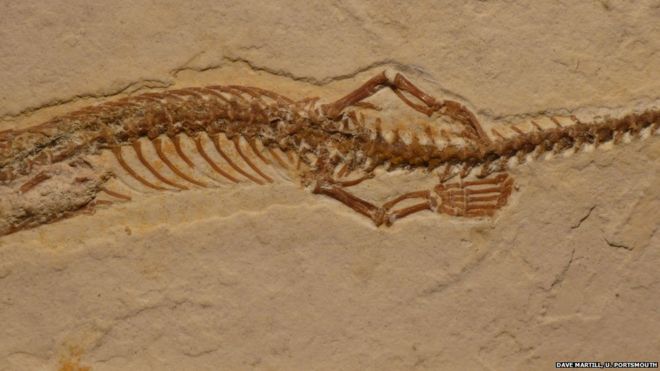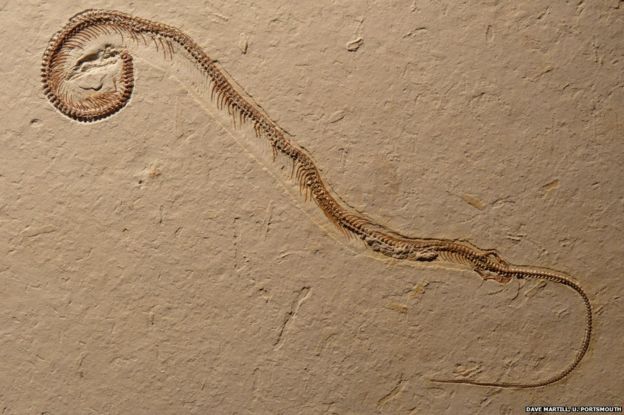A 113-million-year-old fossil from Brazil is the first four-legged snake that scientists have ever seen.
Several other fossil snakes have have been found with hind limbs, but the new find is estimated to be a direct ancestor of modern snakes.
Its delicate arms and legs were not used for walking, but probably helped the creature to grab its prey.
The fossil shows adaptations for burrowing, not swimming, strengthening the idea that snakes evolved on land.
That debate is a long-running one among palaeontologists, and researchers say wiggle-room is running out for the idea that snakes developed from marine reptiles.
"This is the most primitive fossil snake known, and it's pretty clearly not aquatic," said Dr Nick Longrich from the University of Bath, one of the study's authors.
Speaking to Science in Action on the BBC World Service, Dr Longrich explained that the creature's tail wasn't paddle-shaped for swimming and it had no sign of fins; meanwhile its long trunk and short snout were typical of a burrower.
"It's pretty straight-up adapted for burrowing," he said.
When Dr Longrich first saw photos of the 19.5cm fossil, now christened, he was "really blown away" because he was expecting an ambiguous, in-between species.
Instead, he saw "a lot of very advanced snake features" including its hooked teeth, flexible jaw and spine - and even snake-like scales.
"And there's the gut contents - it's swallowed another vertebrate. It was preying on other animals, which is a snake feature.
"It was pretty unambiguously a snake. It's just got little arms and little legs."
Deadly embrace?
At 4mm and 7mm long respectively, those arms and legs are little indeed. But Dr Longrich was surprised to discover that they were far from being "vestigial" evolutionary leftovers, dangling uselessly.
"They're actually very highly specialised; they have very long, skinny fingers and toes, with little claws on the end. What we think [these animals] are doing is they've stopped using them for walking and they're using them for grasping their prey."



